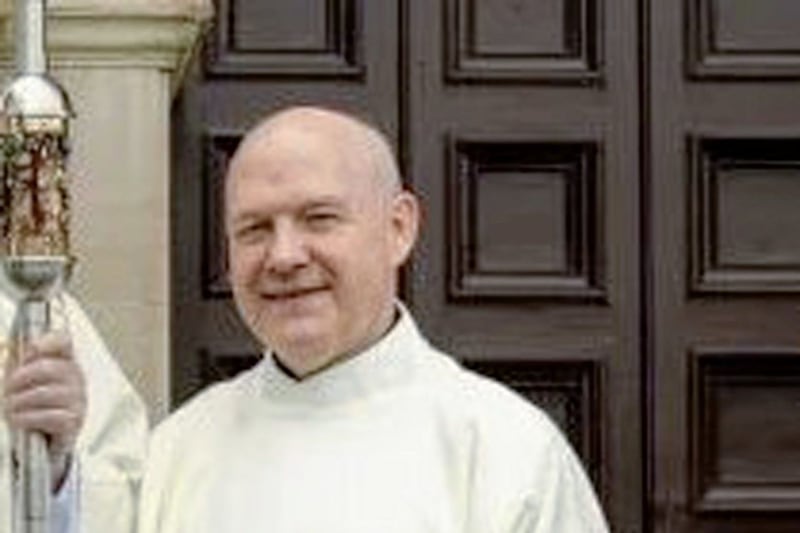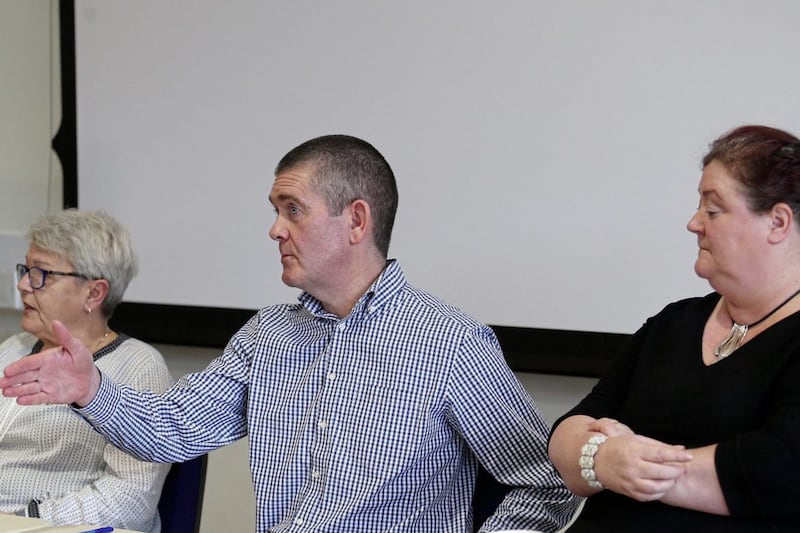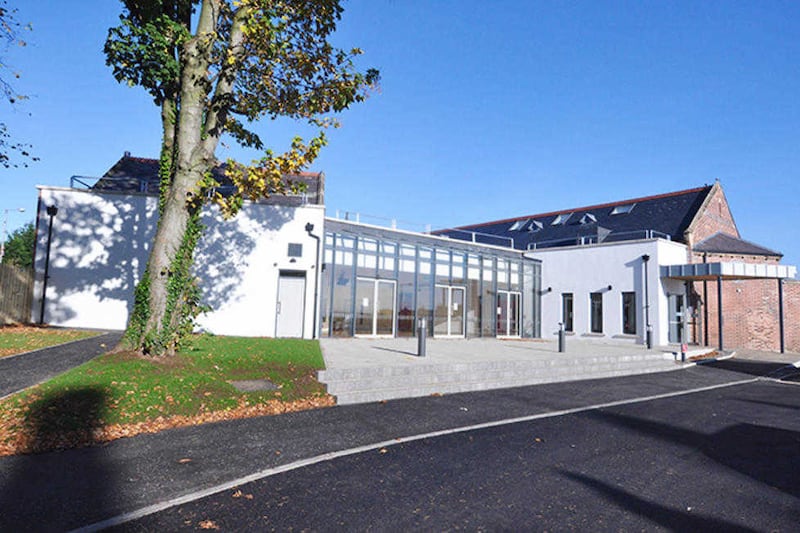The story of the Passionists in Holy Cross, Ardoyne begins in June 1868, when the Passionists were preaching a mission in Portaferry, Co Down.
The Bishop of Down and Connor, Dr Dorrian, invited them to establish a house in Ardoyne. By August 3 of that same year, Fr Raphael, the first Superior, had arrived and shortly after, work had begun on building a monastery and a church.
It was an act of faith in difficult times, and only for the sheer dogged determination of those early Passionists the entire project would have come to a very early end.
Holy Cross Church in Ardoyne now stands proudly on the high ground of north Belfast.This same ground inhabited in pre-plantation days by the O'Neill clan, as a strategic vantage point that enabled them to watch over what was coming and going in the lough and fields that spread out before them in the distance.
Standing on this memory filled location today, you can see the white stone building of Stormont shining in the sunshine on the Castlereagh Hills, and Scrabo Tower as it arises seemingly in isolation near Newtownards. The giant cranes of Harland and Wolff, that as children we watched being built from the back stairway in the boys' school, almost seem within touching distance.
It seems strange that not so many years ago, it was impossible to see beyond the limits of your own street as they were barricaded off with rusting iron or slogan infested concrete boulders.
Two recent developments on the doorsteps of the church speak of the openness and the confidence of the people of this area.
Due to the sterling work of the North Belfast Interface Network, in partnership with local residents, the `peace wall' that scarred this community for many years was removed as part of a re-visioning process for the area. This length of road is now a testament to new possibilities and new beginnings, rather than a standing reminder of past division and mistrust.
In that same week, the Passionists opened the refurbished Houben Centre for Peace and Reconciliation. This building, originally built as the Boys National School in 1914, and more recently a centre for parish activities, is now dedicated to the building of a hope-filled future for all sides in this community.
Located at the most contentious piece of ground in the city, this building is both a challenge to, and a resource for, the local community. It is also a challenge to the wider church community to become relevant in the ongoing task for building peace and reconciliation.
In recent years, the issue of peace and reconciliation has rarely been on the agenda for church gatherings and conferences. We are witnessing an institution that is neglecting what remains the key issue for our community. It seems though that we have an institution that is more concerned with patching up the structure of the institutional church than in "getting out of the sacristy and into the street" as Pope Francis has directed.
Is it any wonder that this institutional church remains so irrelevant for many of those with whom it is called to be most engaged?
The Houben Centre speaks of a different reality. Just as their arrival in 1868 was an act of faith, so the refurbishment of this iconic Houben Centre is also an act of faith by the Passionists in a time of uncertainty. The external aspects of doors opening on to both Woodvale and Crumlin Roads is witness to the internal commitment to working with all, regardless of whatever label is attached to individuals and groups.
Where do these Passionists find their inspiration? Along with the three traditional vows taken on the day of profession, Passionists take an additional vow to keep alive the memory of the Passion, and to do so as a source of hope to people in contemporary society. Indeed, this is their first vow. While this charism has been traditionally lived out through missions and retreats, the lived experience of Passionists in Holy Cross, Ardoyne down through the years speaks of a commitment not only to a pious calling to mind the memory of the Passion that may well comfort and console, but also to a dynamic memory that challenges us to action and to the transformation of suffering into hope and mission.
A cursory glance at the ministry of the Passionists in Holy Cross would see them engaged in parish ministry. This would be a misguided understanding of their ministry. Whether it is the ministry of reconciliation through economic regeneration; the ministry of healing through counselling and therapeutic services; the ministry of conflict transformation through being immersed in peace building initiatives, or the ministry of being present to people in need of a grief and loss, parish initiatives are simply a structure through which an authentic, contemporary memory of the Passion gives hope and mission to individuals and to the community.
The Houben Centre, named after the Dutch Passionist, St Charles Houben of Mount Argus, who once lived in Holy Cross, speaks of their continued commitment to the people of this parish.
While projects based in areas that have never witnessed the reality of violence are accessing peace monies, the building of this centre was only possible through the generous support of the Flax Trust.
Once dedicated to promoting peace through economic regeneration, the Flax Trust is now leading the way in countering the injustice where young people from this area have no access to secondary education in their own community.
The Ardoyne Shankill Healthy Living Centre, offering therapeutic services to people from both Ardoyne and Shankill areas is an anchor tenant.
The youth project, R City is firmly established offering leading training to young people from both Ardoyne Youth Club and the Hammer Youth Centre from the Shankill. These are backed up by a Peace and Reconciliation Office headed by the Passionists.
In both its physical space and the work going on within its walls, the Houben Centre speaks of hope. This has been a real act of hope in uncertain times. There is a sense that in this area, where the crucified is no stranger and where the people are familiar with grief, the memory of the Passion story could not be more relevant.
:: Brian McKee is director of Seedlings.





